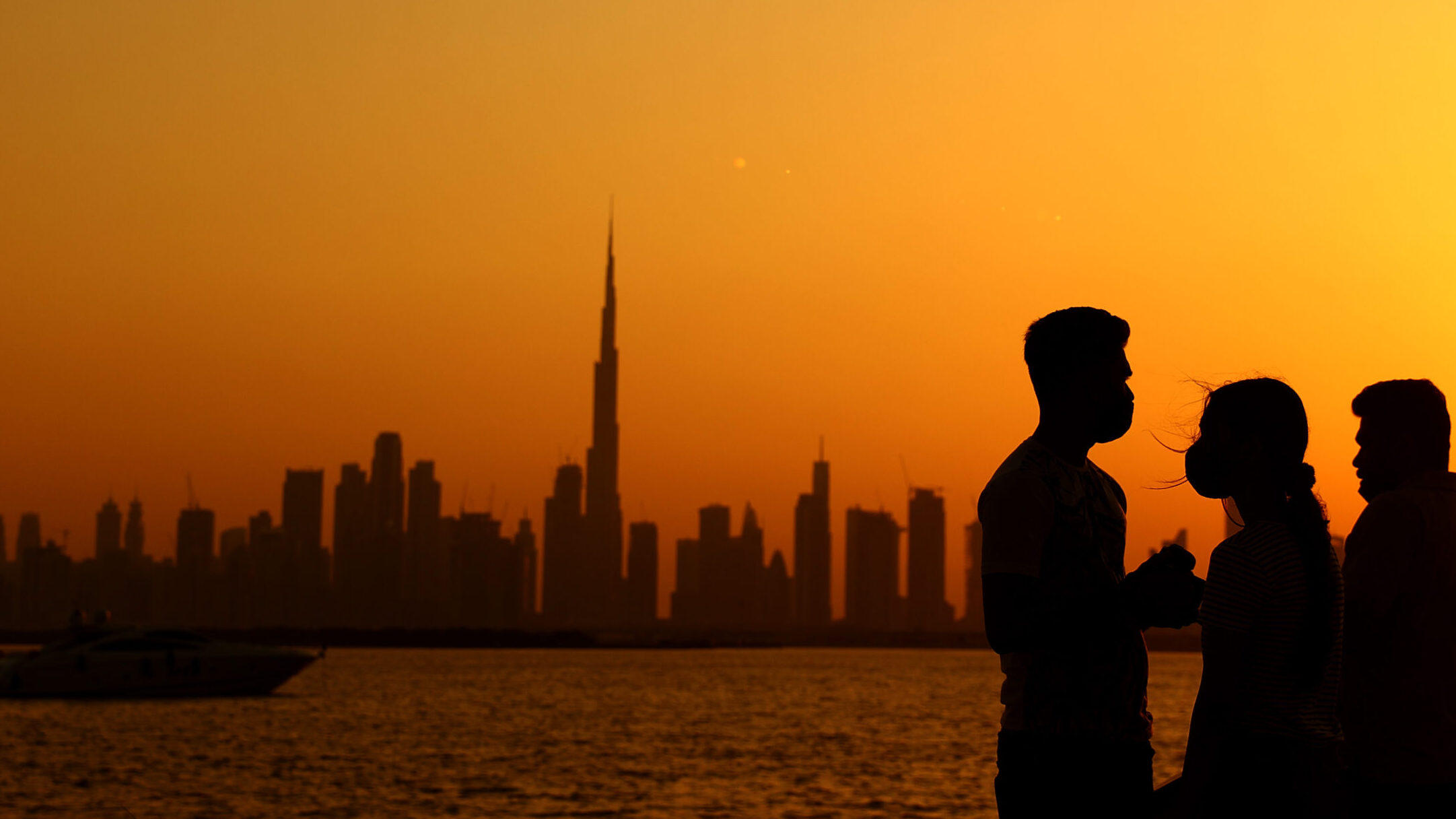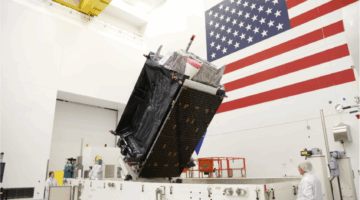
BEIRUT — As regional tension in the Middle East ratchets up with every day of Israel’s military operation in Gaza, a key official from the United Arab Emirates is standing firm that Israel’s relationship with his country and the Abraham Accords that have bound the nations since 2020 are not in danger of rupturing.
Ali Al Nuaimi, chairman of the Defense, Interior, and Foreign Affairs Committee of the UAE Federal National Council, reportedly said Tuesday, “The Accords are our future. It is not an agreement between two governments, but a platform that we believe should transform the region where everyone will enjoy security, stability and prosperity.”
Al Nuaimi was speaking at an online briefing organized by the European Jewish Association (EJA) and the American Israel Public Affairs Committee (AIPAC), according to the Jewish News Syndicate.
Even as the Emirati foreign ministry has condemned Israel’s deadly military campaign in Gaza and its diplomats have urged a ceasefire, such public comments stand out as other Arab countries — including those that have normalized relations with Israel — have stuck to harsh criticism or fallen silent. Jordan, for instance, on Wednesday recalled its ambassador from Israel, and others have vocally protested on behalf of Palestinians against Israel’s actions.
And on Thursday, Bahrain’s parliament reportedly recalled its ambassador to Israel and halted economic ties — the first Abraham Accords nation to step back from its relationship with Israel since the conflict began.
As Breaking Defense previously reported, the current conflict is also likely to put a freeze on discussions about normalization of relations between Israel and the largest Sunni power in the region, Saudi Arabia, though there the White House said Tuesday the Saudis are “still committed” to normalization.
Why It Benefits The UAE To Keep Close To Israel
So with other leaders in the region turning against Jerusalem’s actions, why would the UAE stand firm in its public support for Israeli relations?
Experts told Breaking Defense that Al Nuaimi’s comments likely reflect the apparent view by the Emirates that the economic and security benefits of the Abraham Accords, including those afforded by Israel’s close ally in Washington, will endure the current crisis. The UAE, more so than most any other nation in the region, had embraced warming relations with Israel, including interest in Israeli-made defense systems.
“I’m not really surprised by this [Al Nuaimi’s statements] because for the Emirati’s relationship, the Abraham Accords and the relationship with Israel is far more strategic than a single war,” said Andreas Krieg, CEO of MENA Analytica, a London-based strategic risk consultancy firm focusing on the wider Middle East region.
Analyst David Des Roches generally agreed, but still said he was surprised by the bluntness of Al Nuaimi’s reported comments. Des Roches, an associate professor at the Near East South Asia Center for Security Studies, noted that when the accords were signed, the UAE said they were “conditional” and would be halted if Israel attempted to annex parts of the West Bank. (The actual text of the agreement, as published by the US State Department [PDF], notes the accords were prompted in part by seeking a solution to the Israeli-Palestinian conflict, but those conditions are not listed.)
Therefore, he said, “the UAE actually is in a position [where] they actually have a little bit of leverage over Israel that they didn’t have before. So I think that there may be something going on behind the scenes. But I don’t think that the UAE is in a position to actually prevent Israel from doing anything that they consider to be in their national interests.”
Krieg said that there appears to be a red line drawn by the Emirati government where criticism of Israeli actions in Gaza is acceptable but not of the UAE relationship with Israel — and by extension, the UAE’s largest defense partner in the US.
“It’s not about Israel nor Palestine. It was always about managing the relationship with Washington. So the accords were primarily and are still primarily a tool for engagement in Washington and buying bipartisan support in Washington. That will never change considering where the United States stand without unequivocal support for Israel,” Krieg told Breaking Defense. “The Emiratis are more concerned about international relations and their relationship with Washington than what Arab people think.”
He noted the high-tech systems the UAE currently has access to thanks to its relationship with Jerusalem.
“It has also provide them with a very powerful partnership with Israel. That is also economically and from a trade point of view very viable and beneficial,” Krieg concluded.
After the normalization agreement, Israeli defense firms reserved a pavilion at a huge UAE defense show, International Defense Exhibition and Conference, IDEX 2021, and UAE’s defense conglomerate EDGE Group has publicly announced defense deals with Israeli firms for counter-drone technology, unmanned systems and other platforms.
“The UAE is the only one of the Abraham Accord countries [that] is trying to develop a robust defense industry,” said Des Roches.
He said the UAE has an “ambitious roadmap” to become a leading technological power in the region, and in that race, Israel can be a powerful friend.
“I think that what they’ve learned, there’s probably a great amount of Israeli cooperation particularly. UAE wants to be leaders in technology and computer technology and also biosciences — things that Israel brings a lot to the table so I think the UAE just has more to lose.”
Jonathan Lord, director of the Middle East security program at the Center for a New American Security, noted that since the Accords were signed, the UAE has become Israel’s 16th largest trade partner.
“They signed a free trade agreement this year. Hundreds of thousands of Israeli tourists have traveled to the Emirates. Today, Emiratis go to sleep under the protection of not one, but two different Israeli air defense systems that protect the Emirates from Houthi missiles, along with US THAAD and Patriots,” Lord told Breaking Defense.
He added that for the UAE and Israel, the calculus is clear: the tectonic plates have shifted, and there’s no going back. The benefits that come to both nations from strategic cooperation eclipse the challenges of navigating the Israel-Palestinian conflict, especially with relatively little public outcry domestically.
“Additionally, UAE doesn’t have a large public constituency that’s animated by the conflict. It gives MBZ [UAE leader Mohamed bin Zayed Al Nahyan] the ability to act boldly without fear of the public repercussions with which other regional leaders contend,” he said.
In about two weeks the public should be given another peek at relations between the UAE, its defense industry and Israel when the Dubai Air Show kicks off. So far, a handful of Israeli firms are slated to show off their wares there in the Emirates most opulent city.

